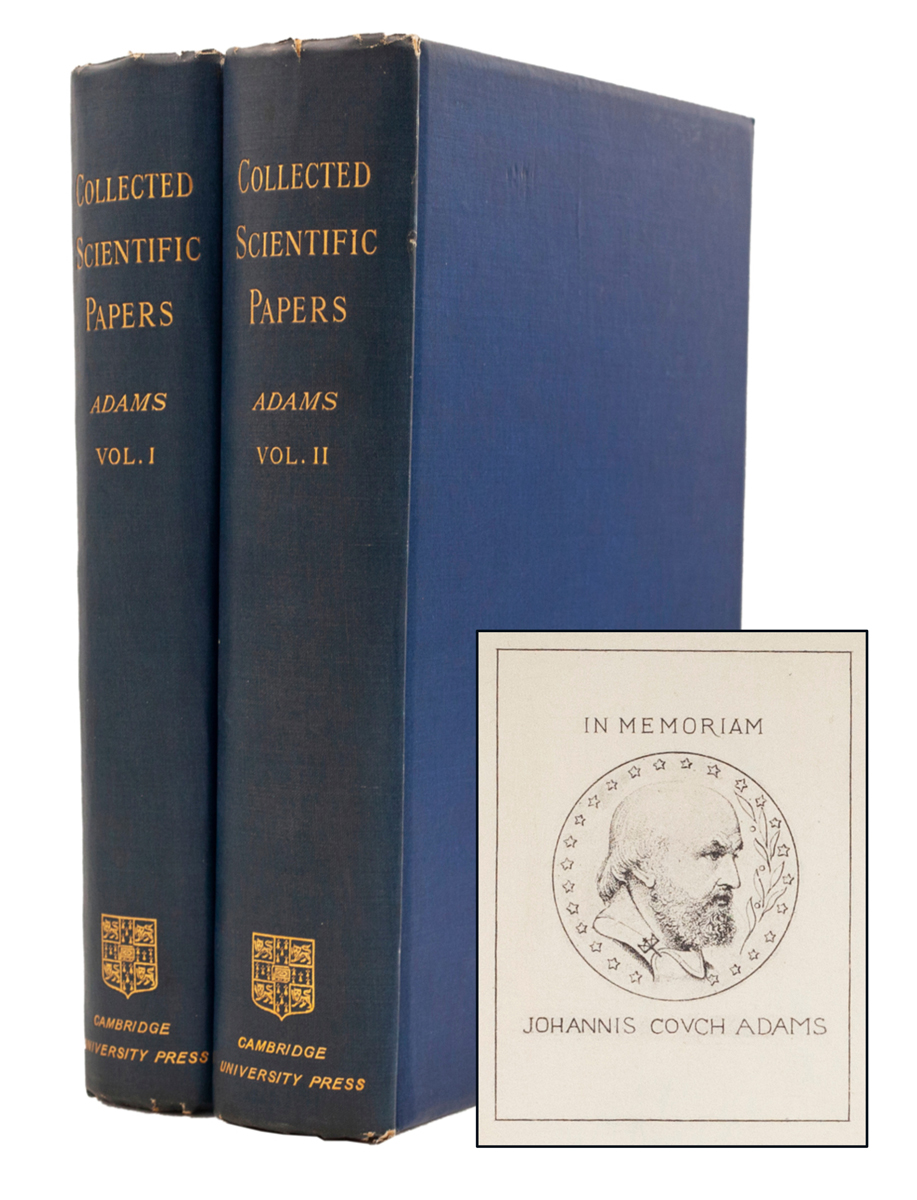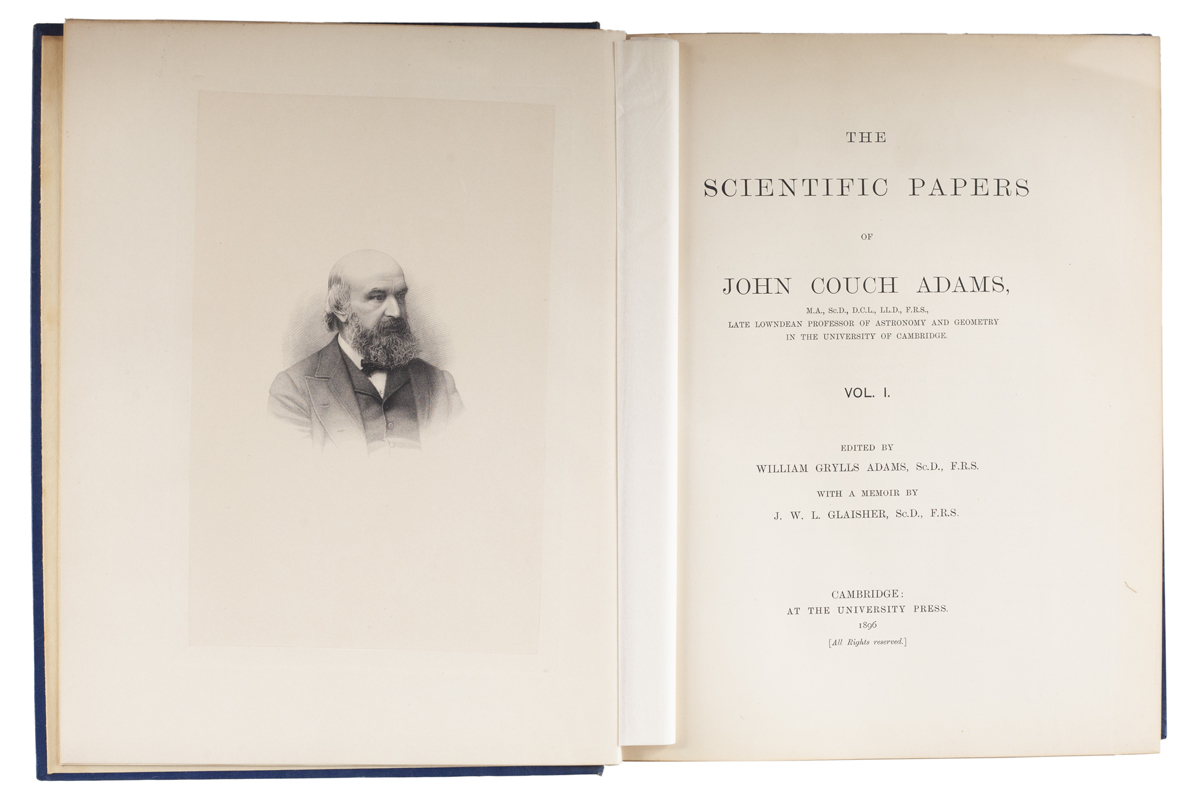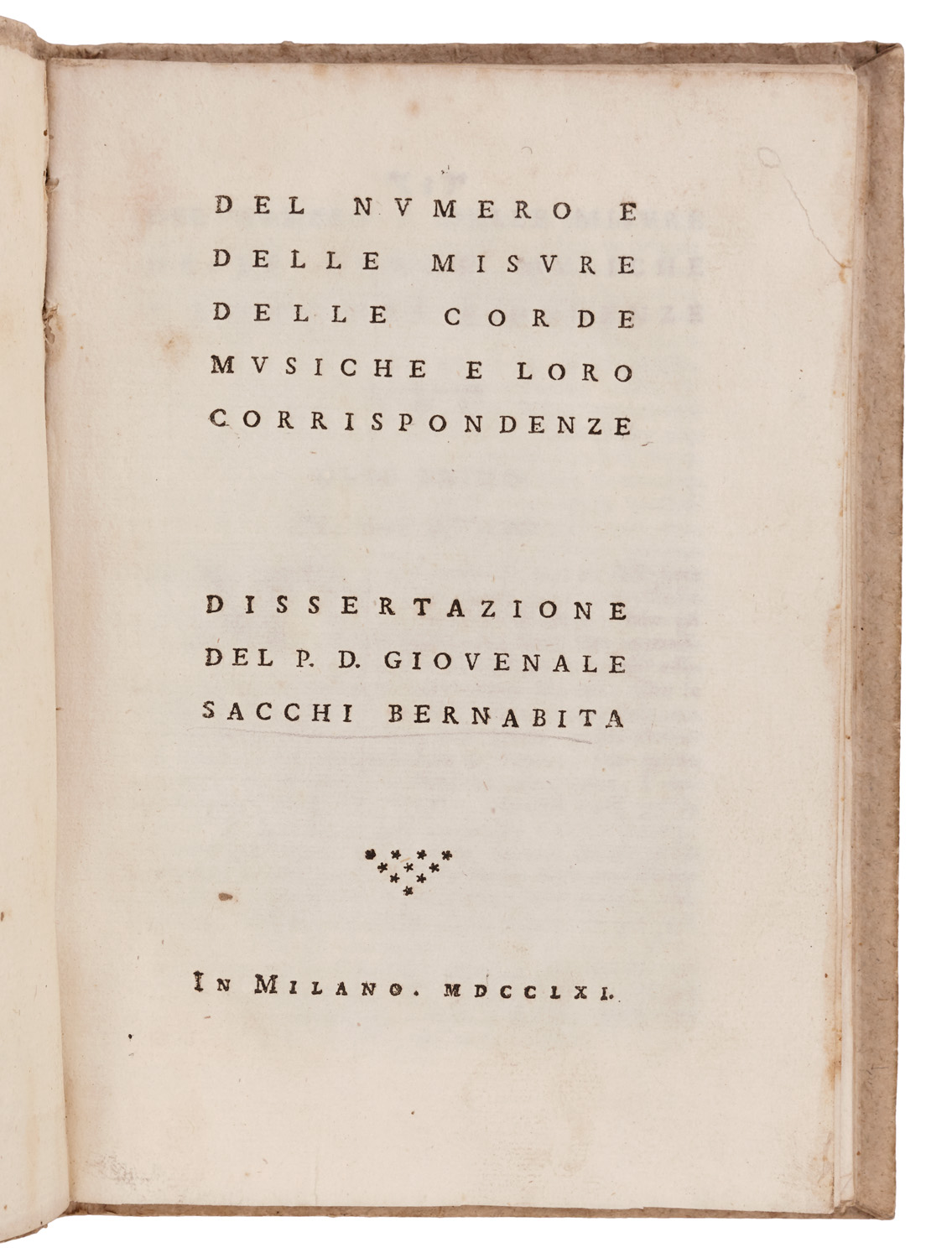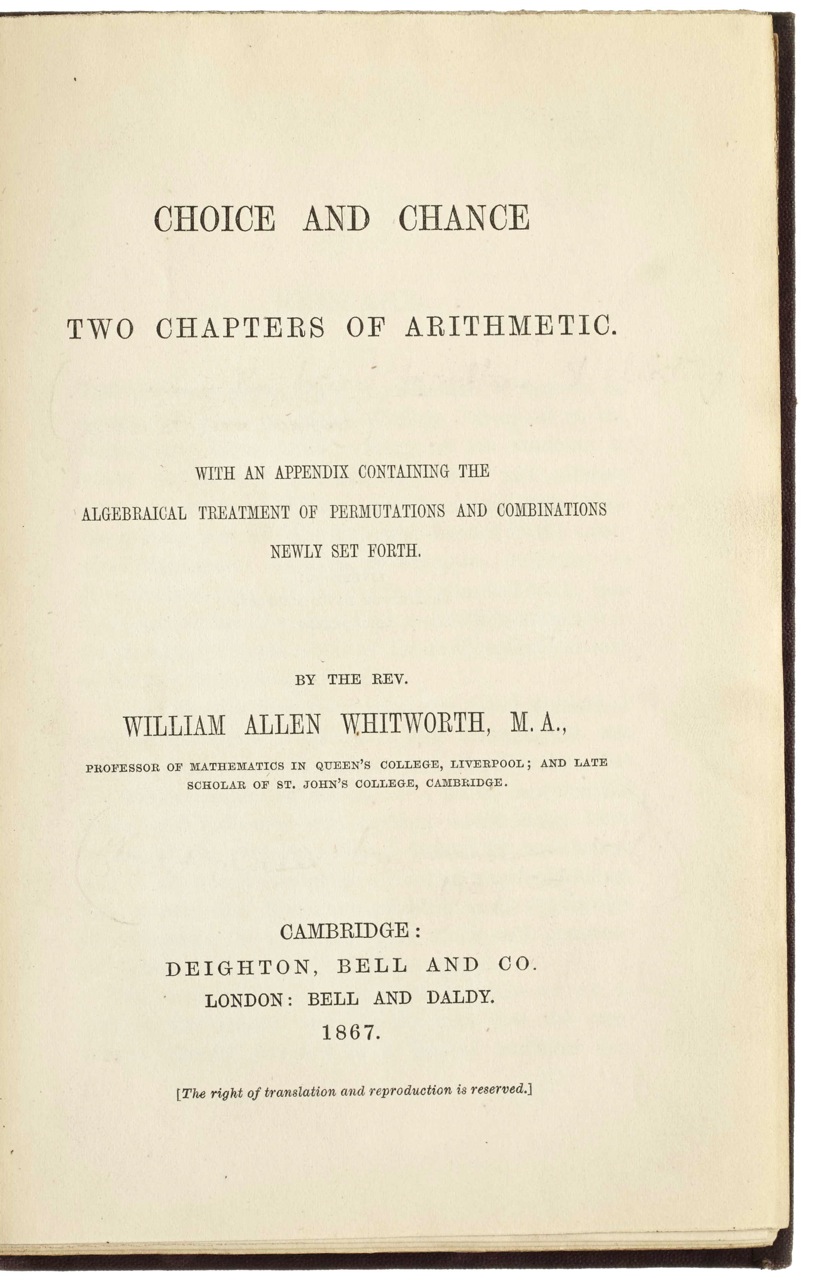

ADAMS, John Couch.
The scientific Papers … edited by William Grylls Adams … with a Memoir by J.W.L. Glaisher.
Cambridge, University Press, 1896 [– 1900].
2 vols, 4to, pp. I: liv, 502, II: xxxii, 646, with 4 pp. facsimiles of Adams’s autograph notes and 6 folding charts, with a steel stipple-engraved frontispiece portrait to vol. I; a fine copy unopened in publisher’s blue cloth, spines lettered in gilt; very slight rubbing at extremities, minimal sunning to spines; with ‘in memoriam’ plates to upper pastedowns.

Added to your basket:
The scientific Papers … edited by William Grylls Adams … with a Memoir by J.W.L. Glaisher.
First edition of the posthumously published collected papers of the Cambridge mathematician and astronomer, John Couch Adams (1819–1892). ‘In retrospect Adams’ many mathematical and astronomical achievements pale in comparison to his analysis of the orbit of Uranus and his prediction of the existence and position of Neptune at the age of twenty-four. Much of his later work has been superseded, but as the co-discoverer of Neptune he occupies a special and undiminished place in the history of science’ (DSB).
For Adams’s original paper on The Observed Irregularities in the Motion of Uranus (1846), see Dibner 16.

